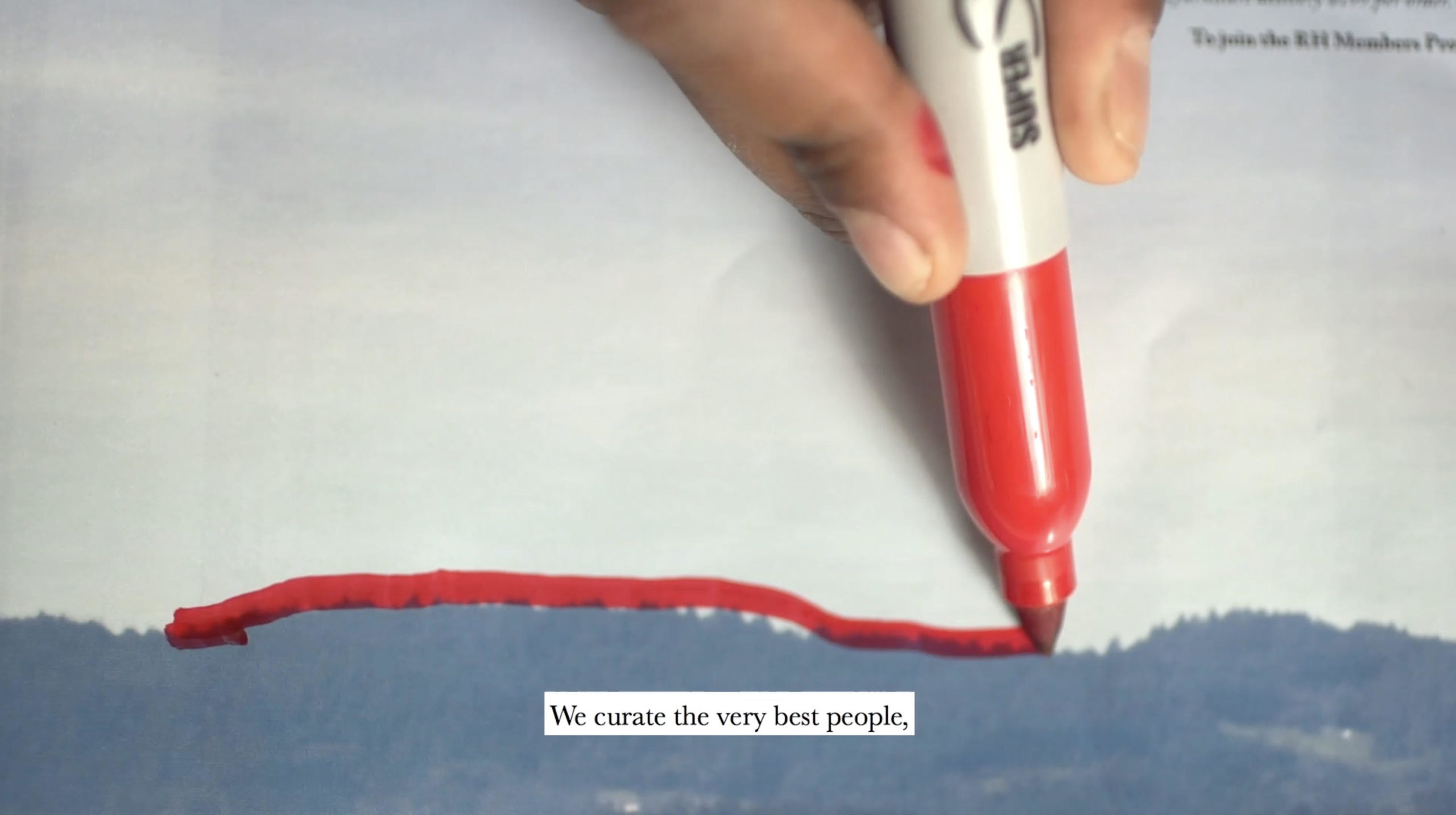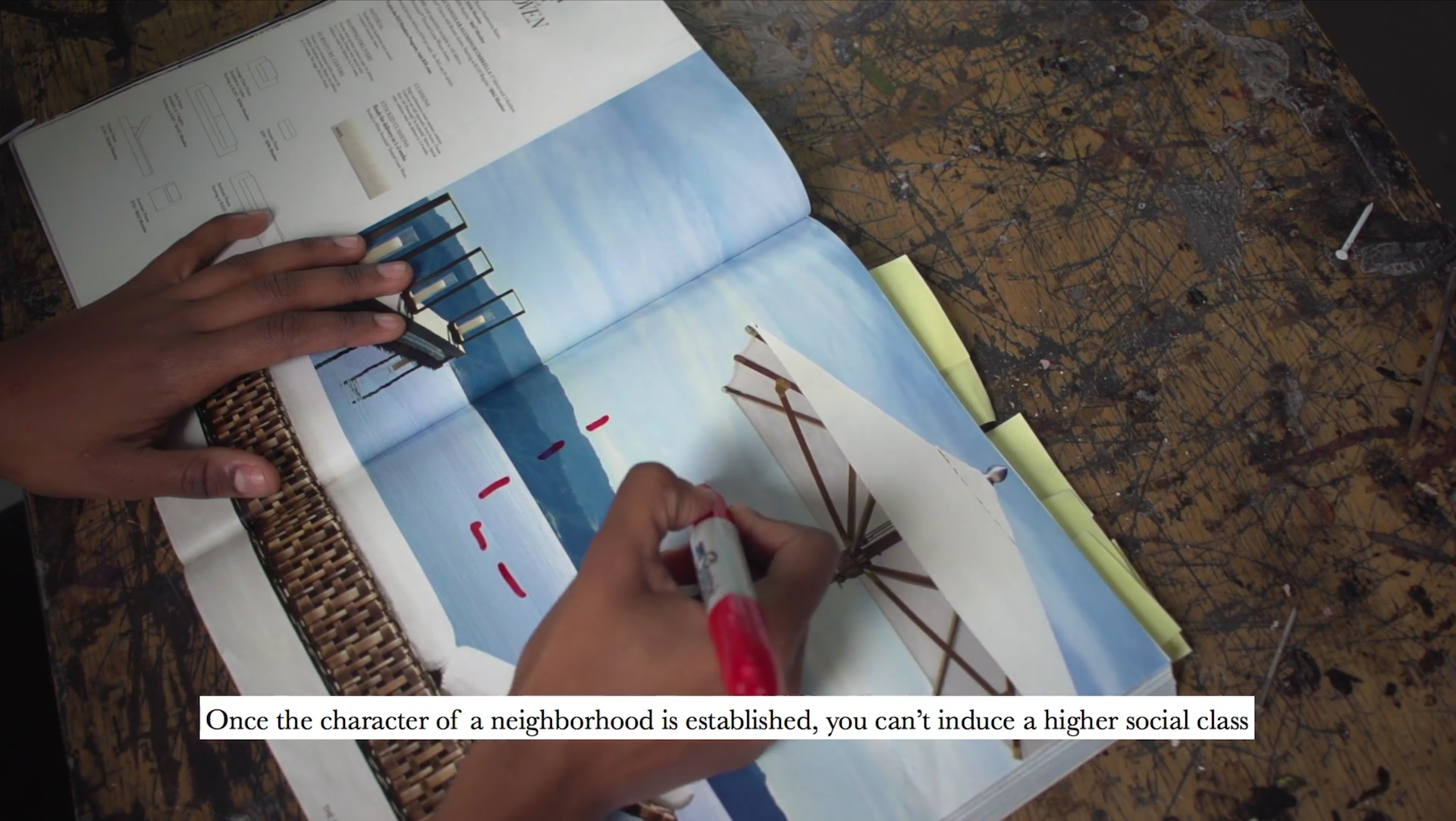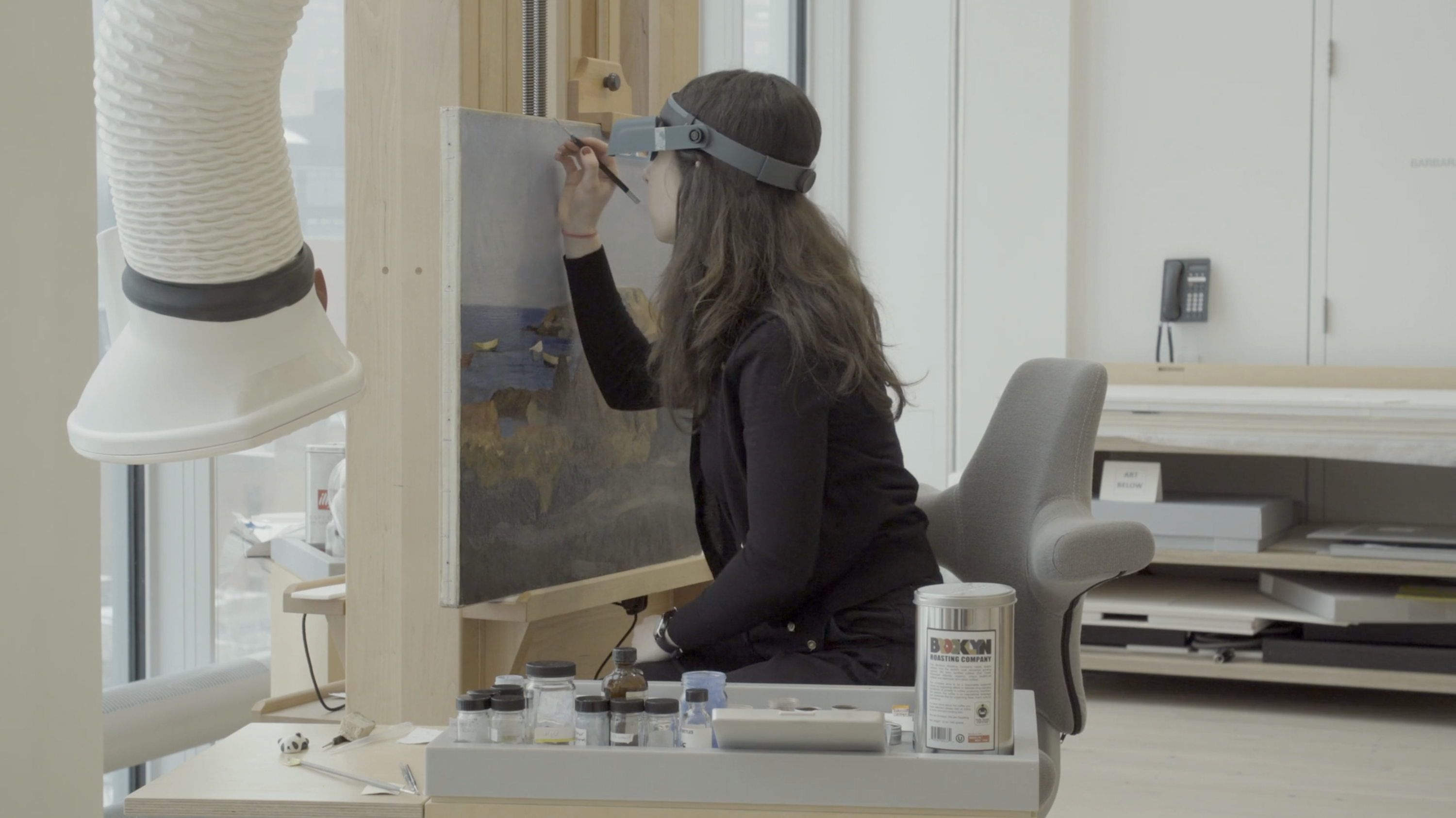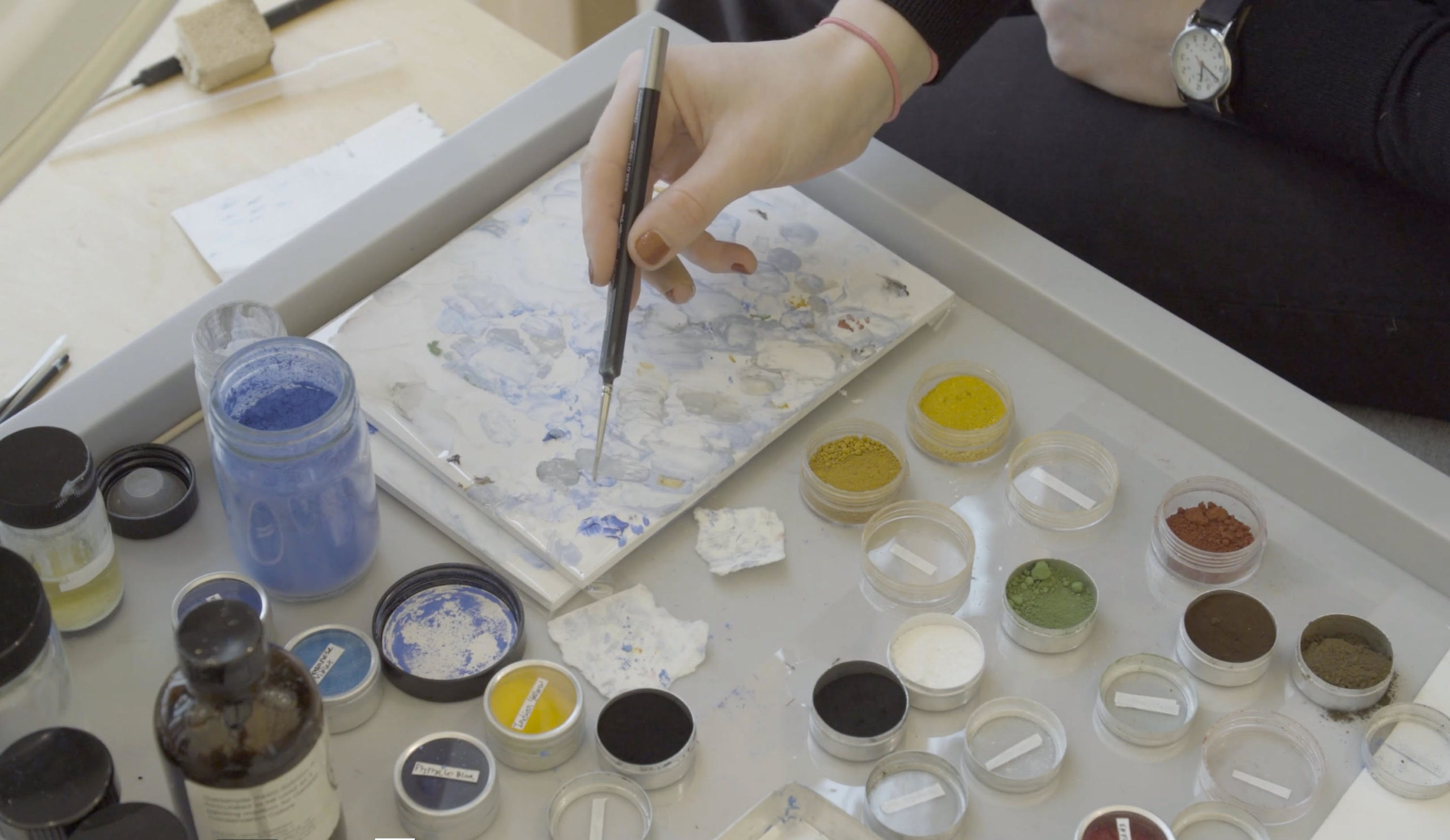Through works such as Fine Lines, Red Sourcebook, and What Truths Are Worth Telling?, Ilana Harris-Babou and Alex Strada investigate the ways labor (particularly female labor) is both masked and romanticized in a shifting urban landscape. As the architecture of the city transforms, certain modes of creation are hidden to make way for aesthetic cohesion and increasing property values. Sharing both complete and in process work, the artists explore the nature of truth, and the role of fantasy in asserting agency over gentrification.

- This event has passed.
Oct 20, 2019 at 7:30 pm
Fine Lines: Truth, Desire, & Displacement
Screening to be followed with Ilana Harris- Babou, Alex Strada & Mathilde Walker-Billaud
Program
What Truths Are Worth Telling?
22 min., 2019, Alex Strada
What Truths Are Worth Telling? poses questions to a range of women whose professional practices intersect with the idea of truth, such as postcolonial theorist Gayatri Spivak, philosopher Vanessa Wills, and writer Sarah Schulman. These conversations are paired with footage of the hidden labor taking place within the Whitney Museum’s conservation lab and at the London Meat Company, one of the last meatpacking facilities that neighbors the museum.
Red Sourcebook
4 min., 2019, Ilana Harris-Babou
Red Sourcebook combines imagery and text from high-end furniture catalogues with 20th century Federal Housing Authority lending guidelines. The quasi-eugenicist language present in both sources blends with vague niceties about good design and aesthetic value.
Fine Lines
20 min., 2019, Ilana Harris-Babou
Ilana Harris-Babou will share research for an upcoming project, Fine Lines, viewing her mother’s home in Brooklyn through the lens of larger trends in both real-estate and cosmetics. She traces a line from 20th-century housing discrimination and villainization of black women, to the current desirability of Crown Heights property. Her mother presents an absurdist beauty ritual in preparation for a meeting with a real-estate developer. The work confronts the crisis of deed-theft and the exploitation of elderly homeowners of color.
50 min
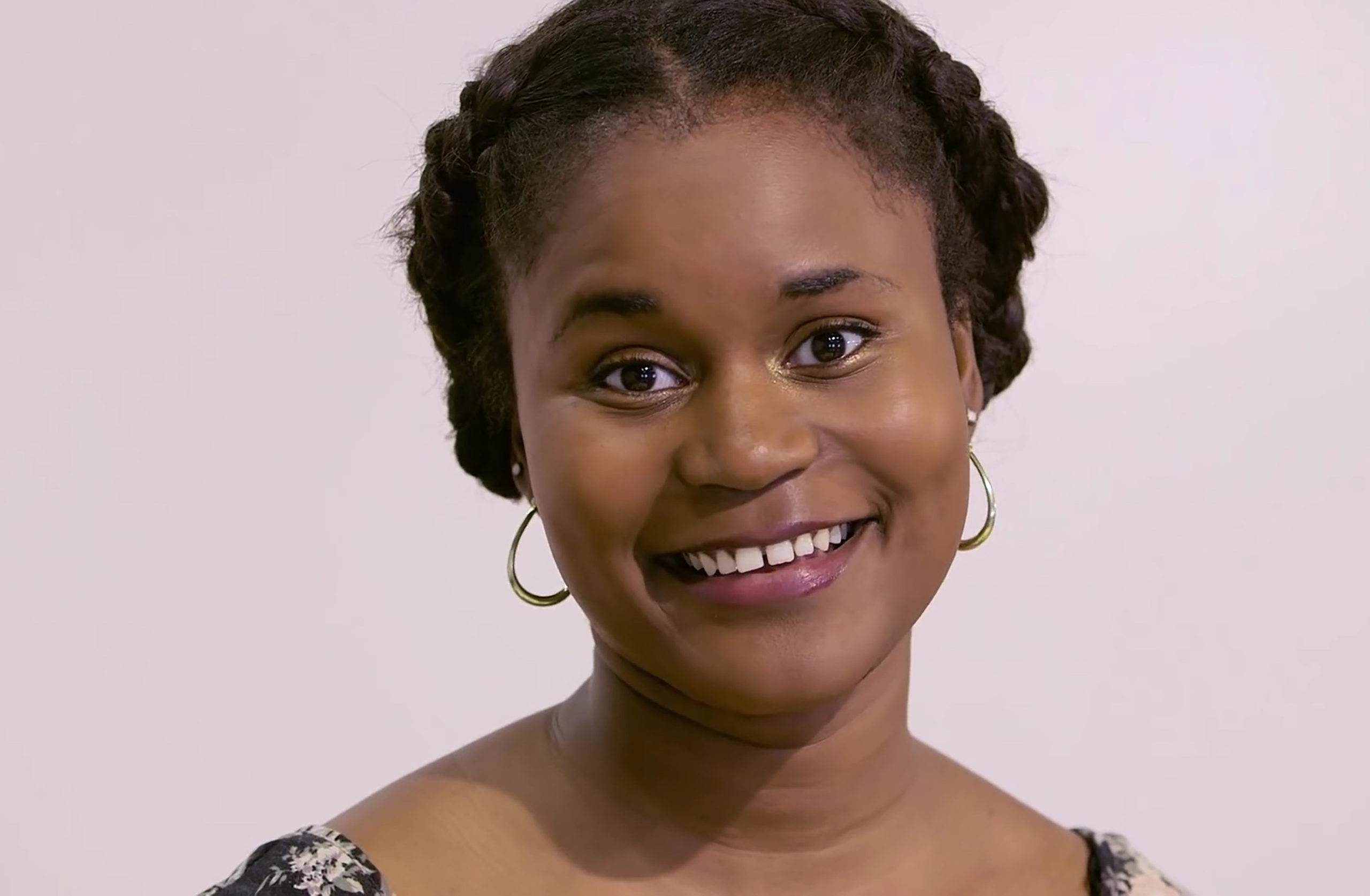
Ilana Harris-Babou’s work is interdisciplinary; spanning sculpture and installation, and grounded in video. She speaks the aspirational language of consumer culture; using humor as a means to digest painful realities. Her work confronts the contradictions of the American Dream: the ever unreliable notion that hard work will lead to upward mobility and economic freedom, concepts exemplified by works such as Fine Lines, Reparation Hardware, and Harris & Daughter Homegoods. She has exhibited works throughout the US and Europe, with solo exhibitions at The Museum of Arts & Design and Larrie in New York. Other venues include Abrons Art Center, the De Young Museum, the Jewish Museum, SculptureCenter, and the Whitney Museum of American Art.
She has been reviewed in the New Yorker, Artforum, and Art in America, among others. She holds an MFA in Visual Art from Columbia University, and a BA in Art from Yale University.
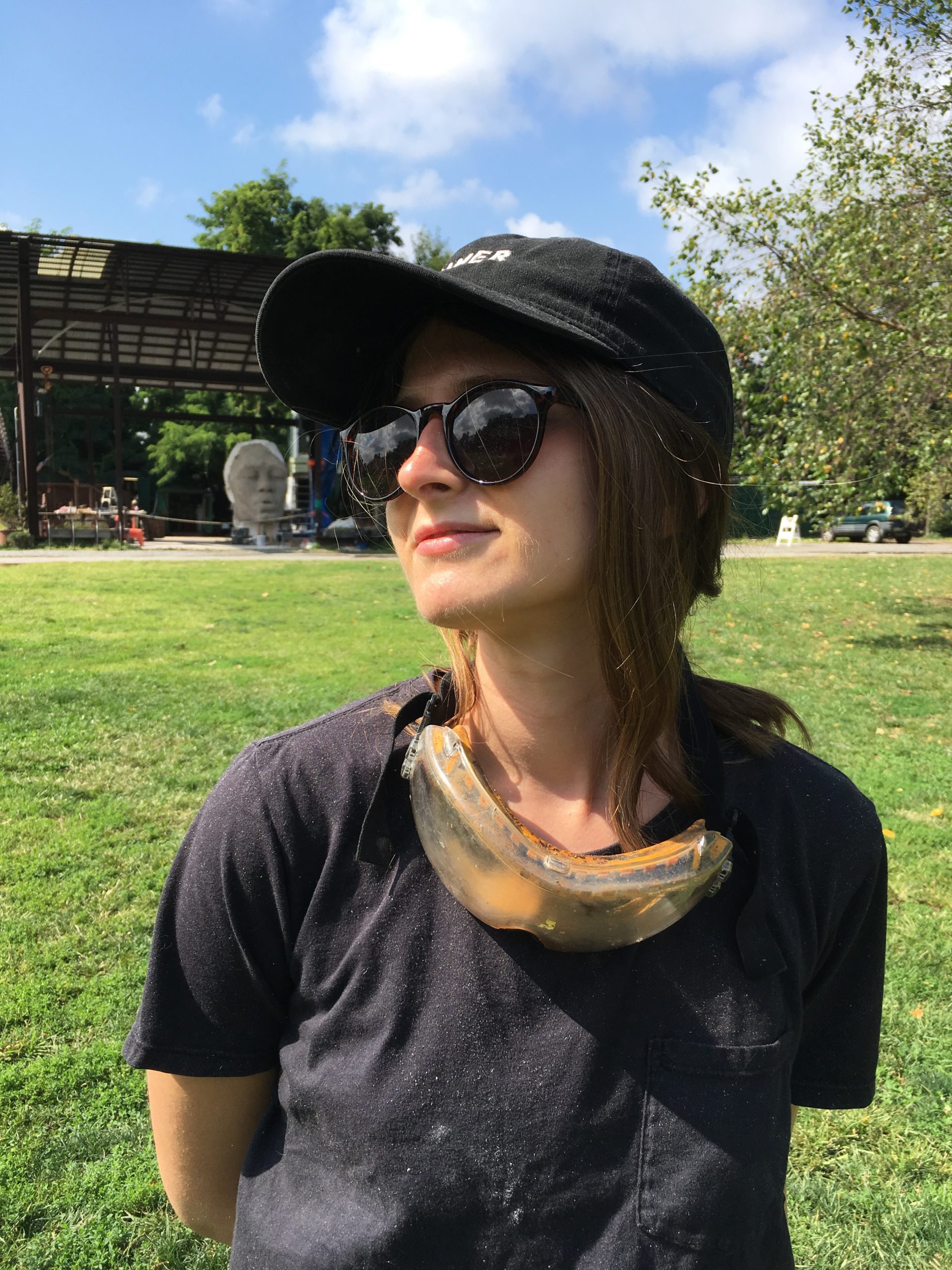
Alex Strada is an artist and educator based in New York City. Her work has been shown at the Anthology Film Archives, Socrates Sculpture Park, Goethe-Institut, Museum of Moving Image, Jewish Museum, National Museum of Iceland in Reykjavik, MuseumsQuartier in Vienna, Kaunas Biennial in Lithuania, and on the screens of Times Square with Time Square Arts’ Midnight Moment. Her work has been written about in Artsy, Vice, and The New Yorker. Strada received a B.A. from Bates College in 2010, an M.F.A. in Visual Art from Columbia University in 2016, and she was a 2018-2019 studio participant in the Whitney Independent Study Program. She is adjunct faculty at Fordham University and Columbia University.
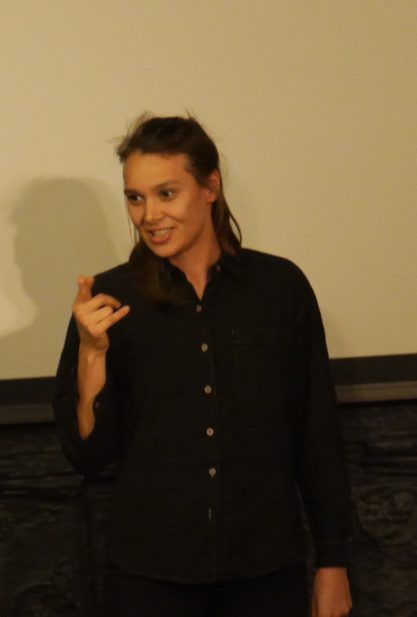
Mathilde Walker-Billaud is an independent curator and cultural producer based in New York, City. She trained and worked as an art editor in Paris. As a Program Director at the cultural services of the French Embassy in New York City, she organized multidisciplinary programs related to fiction and non fiction writings translated from French. She also co-programmed and produced five editions of the international festival of performances and ideas “Walls and Bridges” for Villa Gillet in New York City. For UnionDocs, Walker-Billaud programs workshops and hosts a series of mixed media talks about spectatorship “What You Get Is What You see” which featured Nora Chipaumire, Luc Sante, David Levine, DJ /rupture, Melanie Bonajo, Martha Rosler, Lawrence Abu Hamdan and more.
About What You Get Is What You See
What You Get Is What You See is a forum about the way we spectate.
Filmmakers, artists and writers share their personal observations as viewers, readers, watchers, listeners and audience members. It is a critical space where reception is scrutinized and disentangled, where viewership is exposed as an everyday political act.
This series gives us the opportunity to review the traditional binaries attached to spectatorship: individual/collective, author/spectator, active/passive, life/art, real/fake and discuss the relevance of these terminologies today. This feels critically important as we increasingly rely on digital data and mediated experiences, as we navigate a society that has totally integrated and embraced the spectacular.
Focusing more on the process than the result, the program also highlights the role of spectatorship in creative practice.

